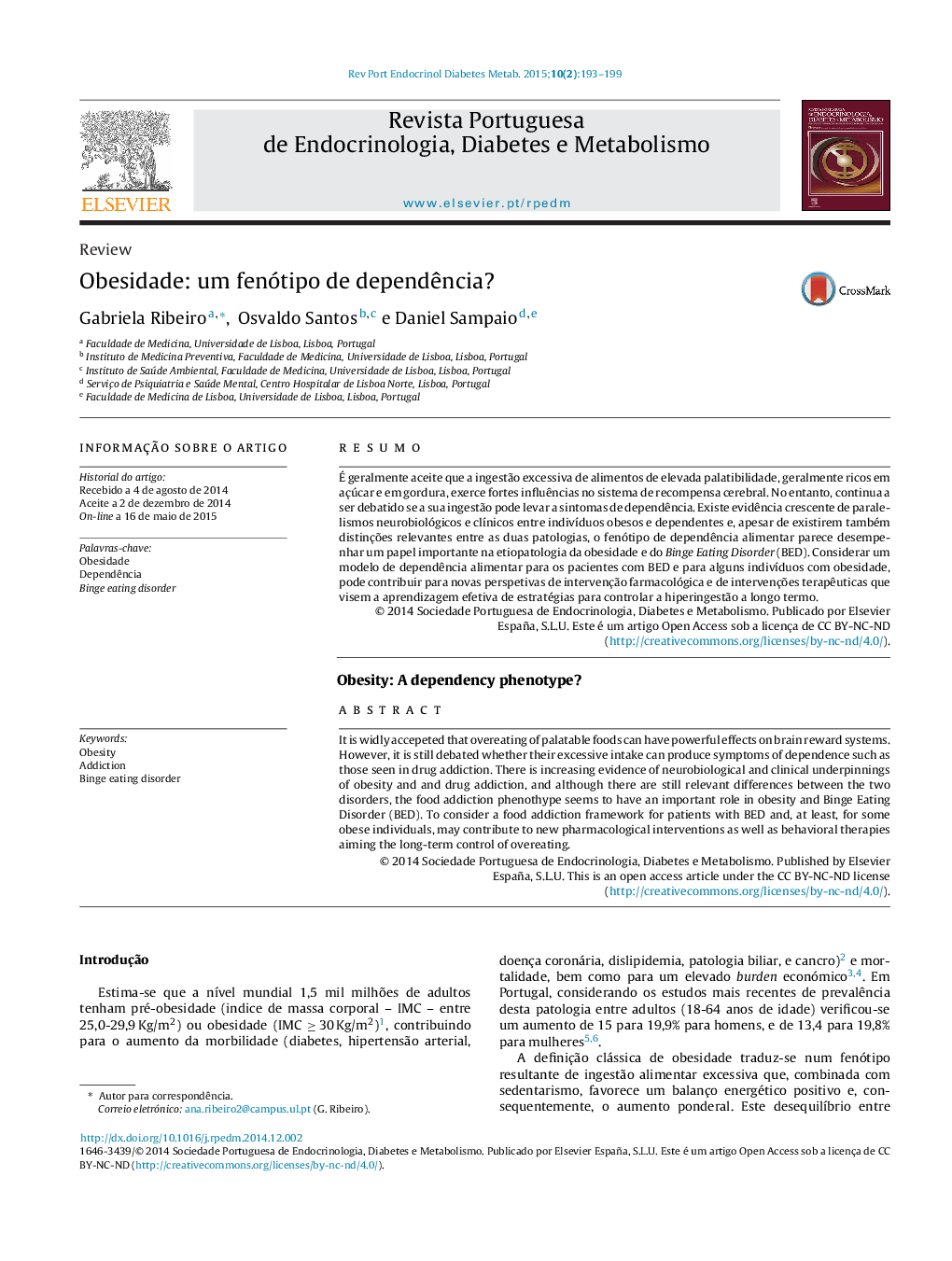| Article ID | Journal | Published Year | Pages | File Type |
|---|---|---|---|---|
| 3278298 | Revista Portuguesa de Endocrinologia, Diabetes e Metabolismo | 2015 | 7 Pages |
ResumoÉ geralmente aceite que a ingestão excessiva de alimentos de elevada palatibilidade, geralmente ricos em açúcar e em gordura, exerce fortes influências no sistema de recompensa cerebral. No entanto, continua a ser debatido se a sua ingestão pode levar a sintomas de dependência. Existe evidência crescente de paralelismos neurobiológicos e clínicos entre indivíduos obesos e dependentes e, apesar de existirem também distinções relevantes entre as duas patologias, o fenótipo de dependência alimentar parece desempenhar um papel importante na etiopatologia da obesidade e do Binge Eating Disorder (BED). Considerar um modelo de dependência alimentar para os pacientes com BED e para alguns indivíduos com obesidade, pode contribuir para novas perspetivas de intervenção farmacológica e de intervenções terapêuticas que visem a aprendizagem efetiva de estratégias para controlar a hiperingestão a longo termo.
It is widly accepeted that overeating of palatable foods can have powerful effects on brain reward systems. However, it is still debated whether their excessive intake can produce symptoms of dependence such as those seen in drug addiction. There is increasing evidence of neurobiological and clinical underpinnings of obesity and and drug addiction, and although there are still relevant differences between the two disorders, the food addiction phenothype seems to have an important role in obesity and Binge Eating Disorder (BED). To consider a food addiction framework for patients with BED and, at least, for some obese individuals, may contribute to new pharmacological interventions as well as behavioral therapies aiming the long‐term control of overeating.
